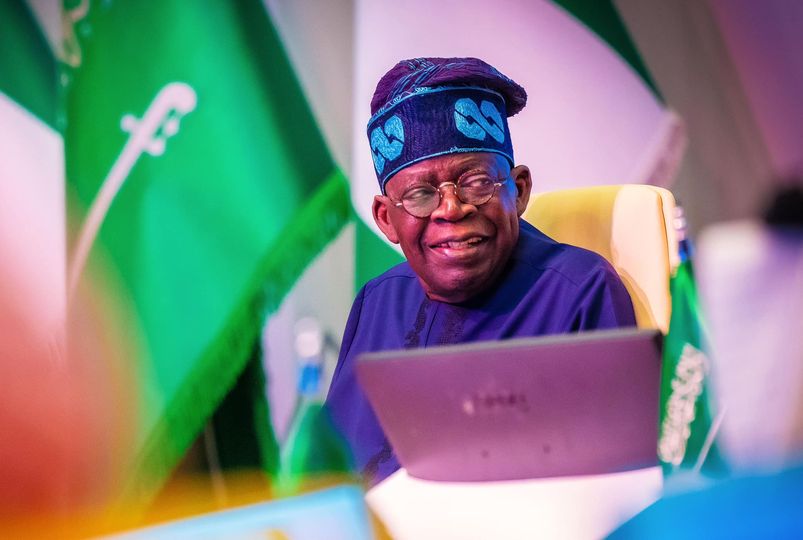19th NAM Summit: Tinubu calls for capital access for developing nations

![]()

President Bola Ahmed Tinubu has advocated for fair access to capital in developing nations saying that it would provide necessary resources for development and address some of the most urgent global challenges.
Speaking at the 19th Summit of Heads of State and Government of the Non-Aligned Movement at the weekend in Kampala, Uganda, the Nigerian leader, stated that the developing world seeks for fair and equal opportunity.
Chaired by Ugandan President, Yoweri Kaguta Museveni, the year 2024 summit was attended by other African presidents and heads of government.
The Non-Aligned Movement is the largest gathering of countries, second only to the United Nations General Assembly.
President Tinubu noted that the combined population of the 120 countries that make up the Non-Aligned Movement is over 4.4 billion, about 55% of the world’s population, yet the total financial resources available to all these countries are much less than other countries.
According to the Nigerian Leader, the total budgetary resources for the 120 countries is less than $3.5 trillion, which is less than the budget of the United States alone. “Whereas the aggregate public debt of less than $6.6 trillion, mostly at higher interest rates and shorter tenor, is about one-sixth of one or a few developed countries, he said.
“These startling statistics, according to the Nigerian leader, are clear evidence that the Non-Aligned countries suffer from a lack of access to capital and resources for development.
“More often than not, public debt available to developing countries is far more expensive and not substantial enough to make an impact. Therefore, we wish to advocate a financing mechanism and equitable capital market access that can provide adequate financial resources to the Global South,” he said.
Represented by the Minister of Budget and Economic Planning, Senator Abubakar Atiku Bagudu, President Tinubu further listed the challenges facing the world currently which include climate change, conflict and wars, terrorism, and widening inequality.
“All these are happening as we are battling to come out of the COVID-19 pandemic. No one nation can tackle these multidimensional challenges,” he said, stressing that this calls for greater collaboration between and among member states as they struggle to achieve sustainable development goals.
According to him, the theme of the summit which is “Deepening Cooperation for Shared Global Affluence” bore relevance concerning the current trend of wars, proliferation of small arms and light weapons, threat of use of nuclear weapons and the dangerous polarization between developed countries, similar to the era of cold war.
“In this regard, we must recommit to the foundational principles of Non-Aligned Movement to better assure of global peace and security,” he said.
On climate change, the Nigerian president pointed out that the developing countries were advancing on the issue with courage and ambition.
“Developing countries have striven in the last two decades under the United Nations Framework Convention on Climate Change (UNFCCC) process to make common but differentiated responsibilities a basic principle of global climate action.
To move forward decisively, access to affordable climate finance and technologies is critical, he said.
President Tinubu urged NAM to work in collaboration with the United Nations to stress the need for the developed countries to provide climate finance of $1 trillion at the earliest to fulfill their promise of $100 billion annual commitment to climate finance to developing countries.
The Nigerian leader also lent Nigeria’s voice to the Non-Aligned Movement (NAM) Member States’ common position in condemning the present wanton destruction of lives and properties in the State of Palestine, which has assumed a critical dimension.
“Nigeria supports and reiterates the call for an immediate durable and sustained humanitarian truce in that region. Many lives, including women and children, have been lost since the commencement of the crisis between the States of Israel and Palestine with so many displaced.
“The daily increase of displaced persons and shortage of humanitarian supplies due to impeded access has greatly impacted the people, exacerbated the humanitarian catastrophe in the region and increased civilian casualties,” he said.
Nigeria urged the parties in the conflict to uphold the fundamental values of international humanitarian law, which places a high premium on ensuring civilians’ safety and well-being.
“This should go beyond mere politics and rhetorics. Destruction of lives and properties including hospitals and religious and cultural sites is a violation of international law.
“Nigeria therefore calls for a ceasefire and reiterates its call once again for quick de-escalation of hostilities by both sides which should help us in getting to a two-state solution. This seeming permanent cycle of violence needs to be broken,” he said.
VON




